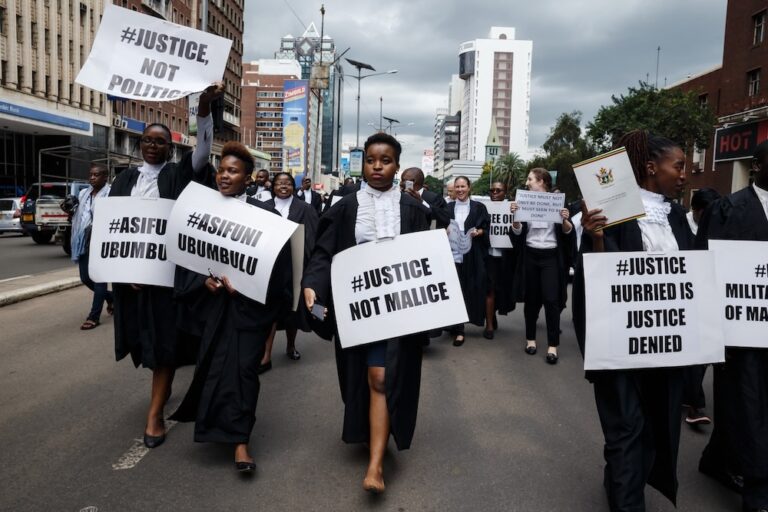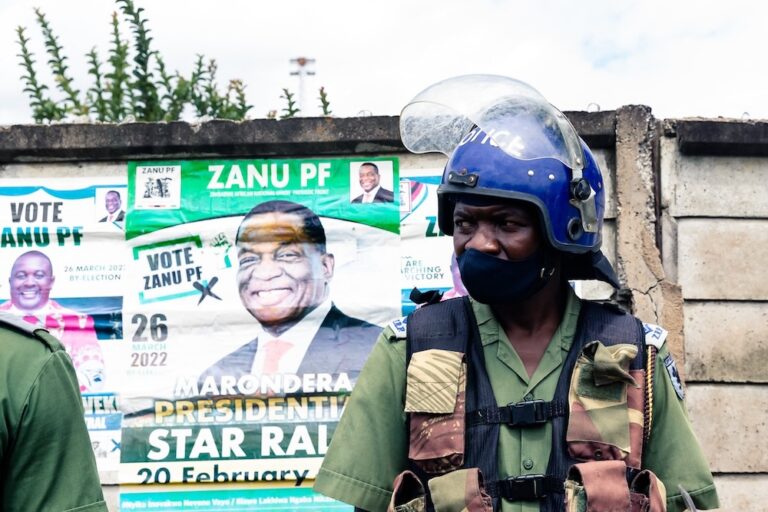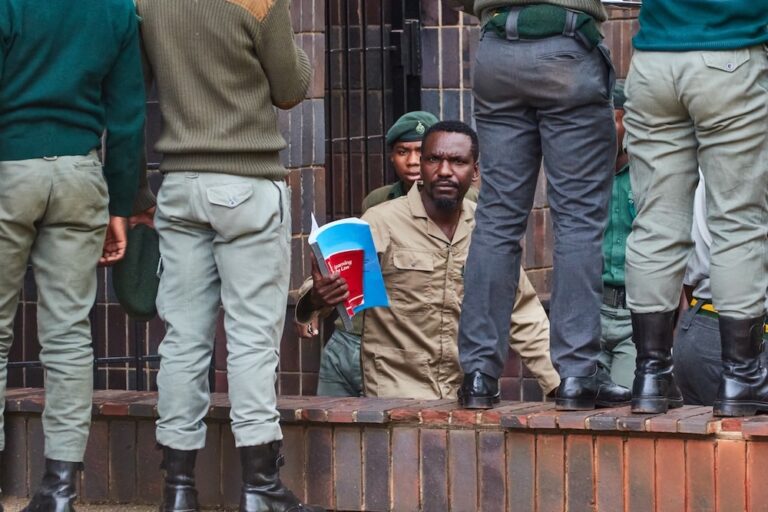(RSF/IFEX) – Reporters Without Borders has condemned the arrest of seven Zimbabwean and foreign journalists during the run-off presidential election that was a foregone conclusion on 27 June 2008. “In its negotiations with Robert Mugabe, the African Union should remind the outgoing head of state that journalism is not a crime,” the worldwide press freedom […]
(RSF/IFEX) – Reporters Without Borders has condemned the arrest of seven Zimbabwean and foreign journalists during the run-off presidential election that was a foregone conclusion on 27 June 2008.
“In its negotiations with Robert Mugabe, the African Union should remind the outgoing head of state that journalism is not a crime,” the worldwide press freedom organisation said.
British freelance photographer Richard Judson and Zimbabwean freelance journalists Regis Marisamhuka and Agrison Manyenge were arrested on 27 June on suspicion of working without being properly accredited with the Zimbabwe Electoral Commission (ZEC) – the usual pretext for detaining journalists. As well as organising the election, the ZEC was in charge of screening and monitoring the press. The three were released on 28 June without charges.
Tumaole Mohlaoli and Elelewani Ramphumedzi, respectively journalist and cameraman with the privately-owned South African television station e.tv, were arrested on the same day in the southern border town of Beitbridge. They were also freed after negotiations with South African police, after spending one night in custody.
Freelance journalist Frank Chikowore and cameraman Edgar Mwandiambira, who were arrested close to the Mhofu primary school in the Highfields district of Harare, were released after the voting ended, also without charge. They were first taken to Southerton police station before being transferred to a station in Machipisa.
“In a Zimbabwe that is mired in an unprecedented crisis, independent witnesses are seen as enemies of the presidential party,” Reporters Without Borders said. “Arrests have become the rule and the Zimbabwean justice system is bogged down in Kafkaesque political cases.”


